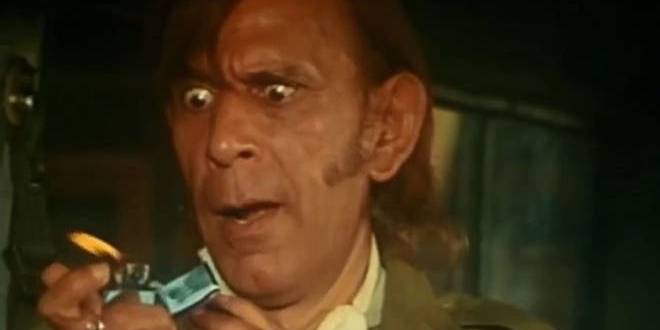Razak Khan had extremely refined taste. He spoke Urdu and English with equal flair, enjoyed long conversations about Hollywood , western and Hindi films from the 1950s and frequently quoted shayaris. His taste in music was just as eclectic. He once shared a song on the Peshawar student killings, which he could quote verbatim.
I wasn’t privy to many facets of his life because I knew him only professionally. I first met him in 2012 to cast him in my directorial debut , Sulemani Keeda. He was aware that we didn’t have money to pay the actors but that didn’t deter him. At the end of the meeting, he didn’t just agree to be a part of the film but also paid for the coffee, refusing to let us shell out money.
He arrived on set completely prepared. He was a formidable actor and knew his lines by heart. He saw us as a team of an indie project that subsisted mostly on vada pavs on the sets thanks to financial constraints so he would bring along a huge dabba packed with mutton keema, fried fish, rice and rotis for the entire unit.
Once, he shared how serendipitously acting happened to him. He was chilling with his gang at Sun n Sand when Javed Akhtar spotted him. The veteran lyricist then sent him a written note saying he wanted to cast him as an actor. An unperturbed Razak bhai declined curtly. Javed sahab then came to him and said, “I am asking you with respect, do you want to act in a film?” Razak bhai was close friends with Amjad Khan at the time who advised him to take it seriously. That’s how Roop Ki Rani Choron Ka Raja (1993) happened.
Razak bhai came from a well-to-do family. Unfortunately, he was to get slotted in similar roles – Ninja chacha in Hello Brother, Kaala Bhai in Kyunki Main Jhooth Nahi Bolta, Fayyaz Takkar of Akhiyon Se Goli Maare, Nawab Changezi in Ishq, Manik Chand in Baadshah. And he had grown tired of them. He had a very recognisable face and became synonymous with a certain kind of character but he wanted to do so much more. I think his greatest film was Dubai Return, where he played the lead alongside Irrfan Khan. The film was directed by my friend, Aditya Bhattacharya. I realised his true potential only after watching this film. He was phenomenal in it. Too bad it never got released.
He knew he was capable of a lot more and enjoyed working in Sulemani Keeda because he did not have to repeat his trademark mannerisms. He attended the Sulemani Keeda premiere at MAMI. Patrons who were standing in lines to catch other films, mostly world cinema, and the ushers, broke into big smiles as soon as they spotted him. Many of them thronged him for selfies . He had that effect on people. They always smiled at him and he reciprocated with equal warmth.
I approached him for my next, Newton, as well which he unfortunately couldn’t do. I had discussed the role with him and told him that he would have to cut his hair, which he said he could not do since he was doing two other films and it would disrupt their continuity.


Leave a Reply